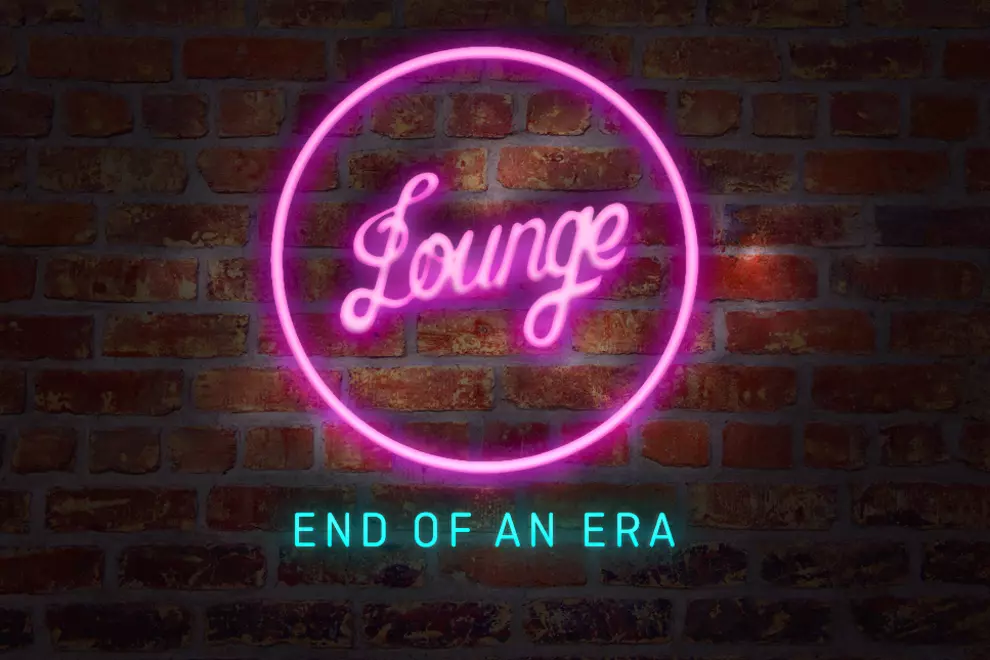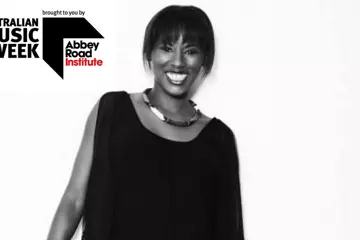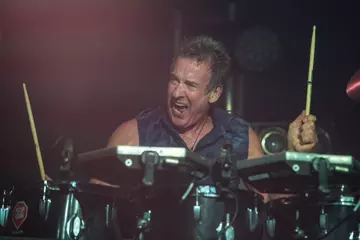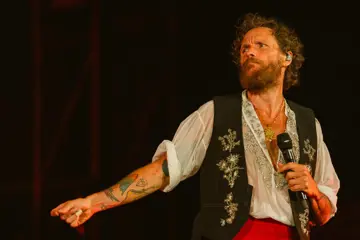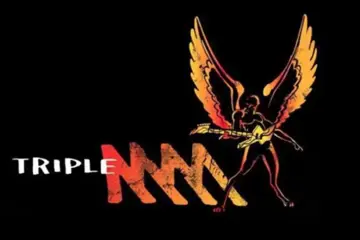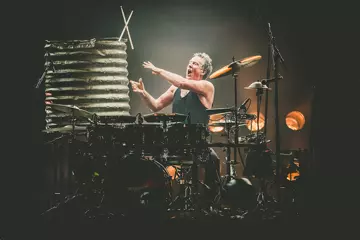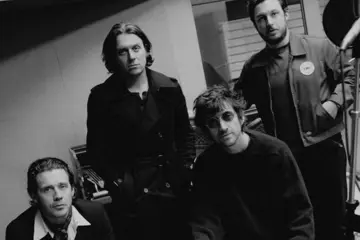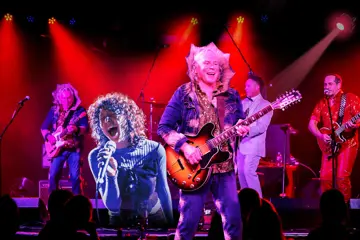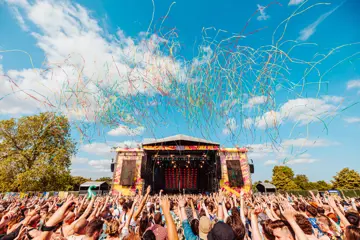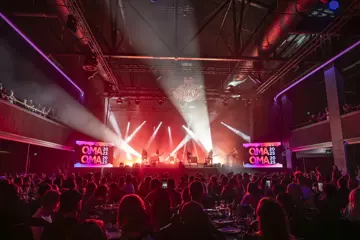The year of 1989 was momentous.
It witnessed the collapse of Communism in Eastern Europe and the Berlin Wall's fall. There were the protests in Beijing's Tiananmen Square. The first commercial Internet connection was launched in the US. Madonna released her exhilarating Like A Prayer, De La Soul debuted with the classic 3 Feet High And Rising, and 2 Live Crew unleashed As Nasty As They Wanna Be, defying American obscenity laws. Seattle's Nirvana quietly dropped Bleach, igniting grunge. Lil' Louis circulated his Chicago house classic French Kiss. Avicii was born, as was Taylor Swift, while Salvador Dali died. But 1989 also saw the opening of Lounge in Swanston Street, Melbourne on 27 October.
Lounge would become a template for a new kind of nightclub in Melbourne, fostering the rare groove, hip hop, techno, house and breaks scenes. It long presaged Revolver Upstairs. This week, the cult CBD institution will shut after 29 years – sad for generations of club kids. Indeed, Lounge has presented a series called 29 Parties For 29 Years, which will culminate in Thursday's all-night bash Thank You & Goodbye. Yet the venue's demise wasn't the choice of owner Carlo Colosimo – he couldn't renew its tenancy. "I think that one of the disappointing things for me, with the Lounge being forced to close, is that, from what I understand, it's really based on the idea that the landlord want more money."
The Lounge story is about subculture, gentrification, and social flux. In 1989, inner-Melbourne had scant nightlife, being deemed seedy. "When we first opened, there weren't really any other clubs or bars in the city that catered certainly for our audience and, I'd believe, fundamentally for no audience," Colosimo recalls. As such, the city was attractive to him and his business partners with affordable real estate.
"It was empty, basically, and gave us an opportunity to do something cheaply." Externally, the Lounge building is nondescript. But, once upstairs, the site's versatility is evident. Soon, Lounge was infamous for the balcony – which experienced its share of misadventures. Colosimo envisioned his club as "ideally a hub for the community we were addressing; the subculture that we were hoping to draw to the venue."
Don't miss a beat with our FREE daily newsletter
Trading 24 hours over the weekends, Lounge originally functioned as a modern salon, bringing creatives together to exchange "ideas" (one of those creatives was a touring Bjork). It had pool tables (and memberships). The venue programmed live music, DJs, performance and visual arts, comedy, poetry slams, readings, fashion parades, everything. And, "since day one", Lounge served food, with a kitchen on site. "Oddly enough, lots of people who come in during the day don't know that we necessarily operate at night and vice versa," Colosimo notes.
Initially, Lounge's focus was on live music and, with Colosimo involved in the booking, they engaged "some big acts". In early 1995 Gil Scott-Heron, the Godfather of Rap, headlined Lounge. In a strange tale, the now-iconic Melbourne DJ, JNETT (aka Janette Pitruzzello), was part of the event, albeit from afar.
"My name was actually on the flyer as one of the DJ supports, but I was unfortunately out of the country, in the USA, at the time, so never even got to experience it in the flesh," she shares.
Lounge was the kind of place where one night you could see a young man table top dancing for US film director John Waters and another you could see Kylie partying with Hutchence. Mythically, Jeff Buckley performed an intimate show at Lounge on his augural Australian tour in 1995, to promote Grace.
Lounge branded itself counter-culturally. On Sundays, it hosted the Sparkling Matinee sessions – with tap dancing. Lounge held the White Gloves Film Festival, for short movies. "We published a magazine for unpublished writers called Vehicle for a number of years," Colosimo adds.
And Lounge briefly had a record label, airing an album by The Feeling Groovies, a resident jazz funk band, entitled Vibez'n – The Intergroovelactikflobraryofsirvibal, in 1993. "We had intended to do more, but the opportunity never arose, so we didn't do any more."
Colosimo remembers Lounge's formative period with fondness. "For me, those early days were more interesting, in many ways, because we were doing more things." Alas, these endeavours "became more problematic financially to manage," requiring a strategic shift. Gradually, Lounge switched to "traditional sort of DJ activities".
Still, even amid this reinvention, Lounge remained cutting-edge in its curation. Colosimo recruited outside DJ/promoters, like Hot Rod and Jason Rudeboy, who, from 1992, presided over the Dali-esque mid-week techno carnival Club Filter – a precursor to Berlin's Berghain.
Filter booked key internationals, including Detroit's Underground Resistance-affiliated Claude Young. Finishing in 2003, Filter was declared the world's longest-running techno night. "I don't know about that, to tell you the truth," Colosimo laughs. "I mean, Rod – who, of course, was one of the promoters and DJs of that night – that's his claim, yes. I'm pretty certain he's done some research on that. At the time, it was true. But I suppose part of it is, if you keep saying it long enough, then people go, "Yes, it's true" – and that is what occurred, I think." After 16 years, the crew will return for Wednesday's Club Filter – A Gala Event!, staging the Melbourne Underground Techno Awards – Carl Cox attending.
From 1990, DJ Kano Hollamby promoted Cocoa Butter, having previously played Sunday's soul/jazz night Hopscotch with Takse. "It was basically all the main beatdiggers and record collectors of Melbourne at that time, plus a live band or musician element weekly," he explains.
Cocoa Butter's music policy encompassed soul, jazz, funk, Latin, Afrobeat, ska, disco, hip hop "and," Hollamby says, "whatever else felt good at the time" – such as the emerging broken beat. The musicians jammed alongside the DJs. Incredibly, Cocoa Butter assisted in hosting the jazz great Lonnie Liston Smith on an historic Australian visit. While Cocoa Butter wound down in 1999, Hollamby revived the concept for a farewell session at Lounge last month, DJing with his old cohort Ennio Styles. The Bamboos' instrumentalists The Firemen joined the get-down.
Hollamby's memories? "Being at one place every single week for over a decade, you see some funny shit. To be honest, it's hazy for many of us: 'smoking' was permitted in clubs back then! But, overall, the highlight was just having a place where we could all get together and play this music, which was not being played anywhere else at the time."
Early on, Lounge also had a Saturday hip hop night, Purveyors, led by DJ Ransom. He brought in Boogs. Says Colosimo, "Now I think – and certainly with Ransom, particularly with hip hop at the time, which was a relatively new sound – it was quite a strong mark, what we were doing." It was at Purveyors where Pitruzzello got her break. "We didn't have regular internationals to highlight it as a valid club night. It seemed the local talent was revered, supported and appreciated from the get-go in its own right. We mainly had local guests." Ransom eventually moved to Revolver, as did Boogs.
For Colosimo, Lounge engendered myriad challenges – some linked to common misconceptions of the night-time economy. In the late 2000s, Victoria's Labor government trialled 2am lock-out laws to curb alcohol-related violence, Colosimo an outspoken critic. Gentrification caused different issues. "Noise-wise, we've had our complaints and we had to do sound restrictions, double-glazing and that sort of thing to prevent problems as we went forward," Colosimo divulges.
Inevitably, Lounge faced competition from other start-ups. The venture had to cyclically "regenerate" itself. "I don't think any venue – whether it's a nightclub, a bar or otherwise – can always be on a trajectory of doing better and better and better and better and better and better… There's just natural peaks and then troughs and then you re-engage yourself a little bit more, freshen up and go again." Besides, club owners must be mindful of generational turnover. Colosimo rues, too, the surging overheads on a hospitality business already taking a "risk".
In recent times, Melbourne has lost fabled live and club venues to redevelopment – the most controversial that of The Palace. The Chevron Hotel was turned into apartments in 2001, with Honkytonks following shortly after. This year, like Lounge, the Cherry Bar – that notorious rock 'n' roll hub in AC/DC Lane – fell victim to the very hipster laneway culture it inadvertently propagated, James Young unable to extend the lease.
Colosimo is in the dark about the future of the Lounge structure. "Look, I don't know the details now, 'cause the landlords were very hush-hush about what their plans were. They were very reticent to communicate any plans and kept saying, through the real estate agent, that 'We don't know…' And then, ultimately, it came out that they had a more substantial offer from another food and beverage entity, basically. So I don't know now who that is; they've not communicated that. And so all I know is, yeah, we've been asked to leave – and that's that. It's not being redeveloped. A large food and beverage operator is taking over; who's offered them a substantial amount of money, whatever that means."
 Pic by Billy Roberts, via Facebook.
Pic by Billy Roberts, via Facebook.
In addition to Lounge, Colosimo is an owner of St Kilda's Big Mouth and Windsor's Tyranny Of Distance. However, he's working towards establishing a successor to Lounge. "We've been active on that now," he reveals. "In fact, we're in negotiations now with a site which is potentially gonna fulfil the nightclub component of what we do. So, yes, we'd like to do that. I would like to do that, because I'd like to feel like, for personal reasons, I've ended voluntarily, by my own volition, as opposed to someone thrusting it upon me – which is really the objection that I have, more than anything else. I'm being compelled to do something, rather than I've arrived at, 'Hey, that's what I wanna do.' So I'd like to just continue on that basis. So I am now speaking to [the agents of] various locations to see whether we can come up with an arrangement that's gonna work for both parties. I hope to have something concluded soon, but nothing's concluded as yet. So we'll continue that process."
In contrast to Young, Colosimo is disinclined to simply relocate his club. The future venue won't be named Lounge. "I think it'd be new," Colosimo ponders, "only because, well, I think that 'new' is probably better for the moment. I think sometimes you can make that mistake of trying to drag out something. I think that it's arrived; we've made an announcement of closure. I would hope that we could still kinda encourage some people to understand that there is a relationship between one or the next, given that we find something, and that there is some continuity of value perhaps. But I don't think we'd call it the 'Lounge', just because Lounge is done – or it will be done."
Lounge has booked DJs, past and present, for Thank You & Goodbye: Ransom, JNETT, Luke McD (who nurtured nu-skool breaks at the club), Sleep D (of Butter Sessions fame), 6am at the Garage (whose Liam Alexander is Lounge's current booker), and Dave Pham (who, ironically, played Honkytonks' "last dance").
Depressingly, nightclubs rarely qualify for public chronicling, let alone heritage preservation. Colosimo himself regrets not archiving materials over the years. "At the time, it never occurred to me there'd be any value in keeping stuff, because we'll just always have it. But now we've come to an end, you go, 'Oh fuck, what have we got? Not much.'"
Today Hollamby holds that, as the haunt of haunts, Lounge's legacy lies in how it transformed the cityscape.
"Lounge was like nothing else when it opened. It was in the shitty part of town – that end of Swanston Street was strip clubs, peep shows, dusty record stores, shit food and trashbags. Lounge took on all the music for the subcultures of Melbourne and gave us a place that was 'a little bit Fitzroy' in feel – when Fitzroy was good – but in the heart of the city. If you wanted to hear music that wasn't being played or heard anywhere else in Melbourne, then Lounge was your place. It was edgy and, best of all, there was a no-bullshit door policy, like everywhere else in town. It was for all walks and all ages and all types. Carlo created an institution and really should be commended for what he has done for the Melbourne music scene. Lounge played a huge role in shaping the music scene here."
In the end, Colosimo philosophises that a club like Lounge is ephemeral because it exists as "a social environment for a particular subculture"; a space for interaction. "I always felt that the core value of any club is really people. It's not strictly speaking music, it's not strictly speaking the room – although all those things have an impact. I think that that's what a club does – or a gathering does, anyway. And, when those people aren't together, and those things aren't happening, then, to some degree, it doesn't exist anymore. It's all those things coming together that make it what it is. It's only that live moment that makes it, 'Oh, this is live, this is real, this is wow…' And then, the next day, it's still there, but it's not as much."

